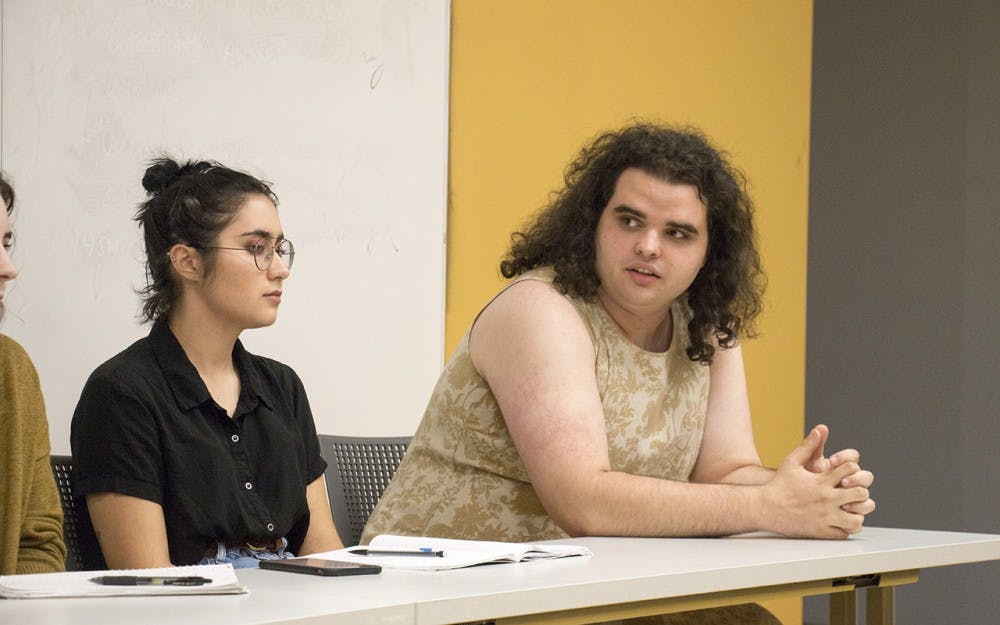Increased representation of women in politics will not necessarily translate into the resolution of patriarchy or sexism in political culture, senior Bee Smale said Wednesday night at a student panel discussion about sexism in politics.
The panel, co-sponsored by Diversity in Action and Students for a Democratic Society, addressed issues women encounter in the United States and abroad, ranging from being catcalled to struggling to break the glass ceiling in the political sphere.
Smale said the problem of sexism in politics is so endemic and structural that community organizing and education of youth are the best ways to find tangible solutions for sexism concerns.
“Education is so important, but I think it would be a waste of our effort to try to educate bigots,” Smale said.
Sophomore panelist Olivia Little said discussing sexism in the political world is important because women in the United States are not present in positions of political power the same way they are in other countries.
“It’s time we have the discussion about female occupation of political space,” Little said. “If you’re not talking about the problem, then nothing is going to get solved.”
Little said assertiveness in female politicians is often portrayed in the media as aggressiveness, but Donald Trump can be belligerent on a debate stage and still have supporters.
“The way women are forced to dress and speak and how they are viewed shows that the political world is inherently sexist,” Little said.
Senior panelist Navo Emmanuel said trying to form a perception of what women in political power look like is difficult if those women aren’t portrayed in the media, and biases in the education system make it harder for women, especially women of color, to attain positions of power.
An attendee asked the panelists why they think gender-related issues are usually the most partisan. Sophomore panelist Anna Ortegasaid the reason why an issue like abortion is such a hot-button issue is because it affects half the population.
“The debate over whether women can control their own body does not empower women,” Ortega said. “When you empower women you need to empower all women. That’s inclusive feminism, and it starts at the bottom.”
Emmanuel said she thinks gender-related issues are issues people are becoming more educated on, which is forcing politicians to confront those issues that are applicable to the entire population.
Several members of the panel expressed the view that Hillary Clinton’s feminism is not inclusive to women who are not white.
Smale said they would hesitate to call Hillary Clinton a feminist, and calling Hillary’s victory a feminist victory is reductive to what the idea of feminism should be.
“Her victory is not inclusive in the way that it’s more empowering for white women, but white women have a lot of privilege that needs to be considered,” Smale said.




